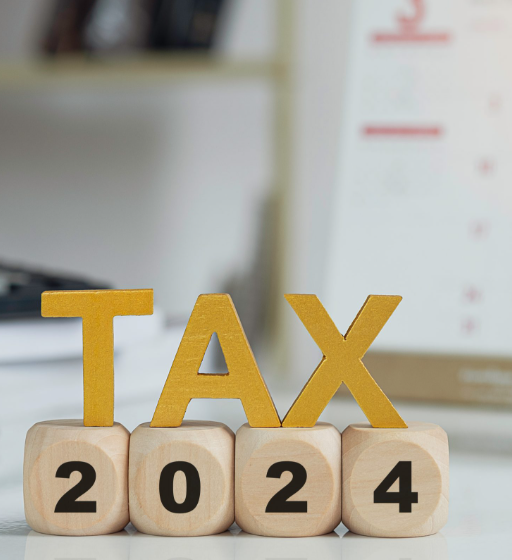In today’s financial landscape, understanding how to save on taxes is essential to keeping more of your hard-earned money. This guide covers practical tax-saving tips for individuals and businesses in the UK, helping you navigate the complexities of the UK tax system. Remember, tax planning is crucial, and while this guide offers valuable insights, consulting with a tax expert can ensure the best possible outcome for your situation.
Understanding Your Tax Liabilities in 2024
The first step in effective tax planning is understanding your tax responsibilities. Depending on your situation, you may be subject to various taxes:
- Income Tax: Payable if your income exceeds £12,570 (for the 2024/25 tax year).
- National Insurance (NI): Contributions vary based on employment status.
- Capital Gains Tax (CGT): Payable on gains exceeding £3,000 from asset sales.
- Inheritance Tax: If the value of your estate exceeds £325,000.
- Corporation Tax: If you run a limited company.
- Dividends Tax: If your dividends exceed £500.
Your total tax burden will depend on factors such as income level, assets, and whether you are self-employed or employed. By understanding these taxes, you can better plan how to reduce your liabilities.
Maximise Personal Allowances and Reliefs
The UK offers various tax-free allowances and reliefs that you can leverage to minimise your tax bill. Here’s a breakdown of key allowances for the 2024/25 tax year:
- Income Tax Personal Allowance: £12,570.
- Marriage Allowance: Transfer up to £1,260 of your allowance to your spouse.
- Capital Gains Tax Exemption: £3,000 per year.
- Trading Income Allowance: £1,000 for self-employed individuals.
- Savings Interest Allowance: £1,000 for basic rate taxpayers, £500 for higher rate.
- Dividends Allowance: £500.
Utilising these allowances can significantly lower your taxable income. If you are married, consider the Marriage Allowance, which allows you to transfer part of your allowance to a higher-earning spouse.
Claim Allowable Business Expenses
For self-employed individuals, claiming allowable business expenses is an effective way to reduce taxable income. Expenses such as office supplies, utilities, and even part of your home costs can be deducted, reducing your overall tax liability. It’s important to keep accurate records and seek professional advice to ensure you’re claiming everything you’re entitled to.
Use Tax-Efficient Investment Strategies
Certain investments are more tax-efficient than others. Consider these options to reduce your taxable income:
- ISAs (Individual Savings Accounts): You can invest up to £20,000 in ISAs without paying income tax on the interest, dividends, or capital gains. Choose from Cash ISAs, Stocks and Shares ISAs, or Lifetime ISAs to suit your needs.
- Pensions: Contributing to pensions is a great way to reduce taxable income. The annual contribution limit is £60,000 (or 100% of your earnings), and contributions grow tax-free within the pension fund.
- EIS (Enterprise Investment Scheme) and SEIS (Seed Enterprise Investment Scheme): These schemes offer tax relief for investing in early-stage companies, including income tax relief and capital gains tax exemptions.
- VCTs (Venture Capital Trusts): These provide income tax relief of up to 30% and tax-free capital gains if held for at least five years.
Review your investment portfolio regularly and seek advice to ensure your strategy aligns with your financial goals.
Minimise Capital Gains Tax
Capital Gains Tax applies when you sell assets such as property or investments at a profit. There are several ways to minimise CGT:
- Transfer assets to a spouse: Transfers between spouses are exempt from CGT, allowing you to combine both of your allowances.
- Offset losses: If you have incurred losses on some assets, you can use these to offset gains elsewhere.
- Use ISAs: As mentioned, selling investments within an ISA avoids CGT.
These strategies can help you keep more of the profit from your asset sales.
Plan for Estate and Inheritance Tax
Inheritance Tax (IHT) is levied on estates worth more than £325,000. However, there are ways to reduce your liability:
- Gifting: Gifts made more than seven years before death are exempt from IHT.
- Use of Trusts: Placing assets in a trust can help mitigate IHT liabilities.
- Charitable Donations: Donations to charity can reduce the value of your estate for IHT purposes.
Consider working with an IHT specialist to develop a strategy that suits your estate planning needs.
Tax-Saving Tips for High-Income Earners
If you earn more than £125,000 annually, your Personal Tax Allowance is reduced. To reduce your tax liabilities:
- Gift Aid: Donations to charity can reduce your taxable income, especially for higher-rate taxpayers.
- Salary Sacrifice: By sacrificing part of your salary for pension contributions or other non-cash benefits, you can reduce your taxable income.
- Maximise Pension Contributions: Higher earners should consider making additional pension contributions to maximise tax relief.
If your income exceeds certain thresholds, the Tapered Annual Allowance will reduce your pension allowance, so it’s essential to keep track of your contributions.
Reduce Corporation Tax for Your Business
Limited companies can also save on taxes by:
- Claiming all eligible expenses: Make sure you claim every allowable business expense, including office supplies and travel costs.
- Employer Share Schemes: Offering shares to employees through schemes like the Enterprise Management Incentive can be tax-efficient.
- VAT Registration: If your turnover exceeds £85,000, register for VAT and consider using the Flat Rate Scheme.
- Making Early Payments: Paying your corporation tax early can allow you to take advantage of HMRC’s early payment interest incentive.
By staying on top of your tax records and planning ahead, you can reduce your corporation tax bill.
Conclusion
There are many ways to reduce your tax liability in the UK, whether you’re an individual taxpayer or a business owner. From leveraging tax allowances to using tax-efficient investment strategies, planning is key to keeping more of your money. Be sure to consult with a tax professional to make sure you’re taking full advantage of the available tax-saving options.



